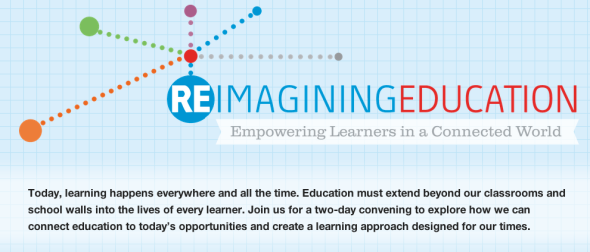Panelists
Elyse Eidman-Aadahl, PhD, Director of National Programs and Site Development,
National Writing Project
Mizuko “Mimi” Ito, PhD, Chair of Digital Media and Learning, John D. and Catherine T. MacArthur Foundation;
Research Director of Digital Media and Learning Research Hub, University of California, Irvine
Martens Roc, Policy and Advocacy Associate, Alliance for Excellent Education
Katie Salen, Executive Director, Institute of Play
Craig Watkins, PhD, Associate Professor, University of Texas at Austin
Educators and researchers across the country are focusing on the best ways to engage students in learning in order to prepare them for college and a career. In an age where students are linked to technology through a variety of ways, educators need to find ways to connect students’ levels of engagement with technology to their academic achievement.
This webinar will focus on “connected learning,” which is a framework that draws on the power of technology to link young people’s interests, social networks, and academic achievement. Four experts—Mimi Ito, Craig Watkins, Elyse Eidman-Aadahl, and Katie Salen—will discuss the research, design, and implementation of connected learning.
Martens Roc will moderate the conversation and panelists will also address questions submitted by viewers from across the country.
Supplemental Material
____________________________
mimi - what distinguishes connected learning from other methods..
it's an approach to learning that is built on long-standing values - and using tech in the service on those learning experiences - and equity issues
all the others can be used in the service of connected learning
craig asked about equity - he says key is engagement - ie: quest 2 learn pulls kids in
he shared that via arne - kids are saying they're not engaged because school is too easy, so need to raise the bar
non-cognitive skills more indicative of future success
to mimi - how can policy makers balance the risk and the rewards
sonia livingstone's work - a lot of times they go hand and hand, if we try to protect, we clamp down on opportunities, entering an era where we can't control, so need to help kids control that themselves, can't develop without autonomy
to mimi - how does common core fit into this
connected learning builds on the foundational learning and literacy all people need to achieve, not an either or, young people have to be able to do both
[time sink?]
elyse on same - there are elements of cc that line up nicely with cl - anchor standards are about being able to navigate the internet, even more profound, if you really look at the standards - they really stand for a production of something by students, core element of cl is the student producing something,
[what do we do with the math standards?]
katie - connected learning is a framework - not a box... 3 spheres necessary for richest possibilites, they don't have to have equal measures, just 3 different doorways, where they go from there is going to look different, so let's not be so concerned with wondering - is this connected learning...
craig - on presidents comments on cl and makers -
mimi - still tremendous barriers - we don't have online environments that create a lot of transparencies into learning that is happening outside of school, ie: in library - how to bring informal into the schools - beyond - show n tell
elyse - nwp this summer - the summer of making and connecting - make something on the web, share something,
new initiative - educator innovator - learning environment for adults - how they could innovate their practice the next school year.















 Scott McLeod (
Scott McLeod (



































